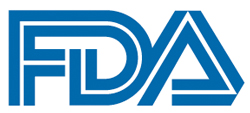 December 21, 2017—This week, the U.S. Food and Drug Administration (FDA) approved multiple agents, across three cancer types: cabozantinib for the frontline treatment of advanced RCC; pertuzumab for the adjuvant treatment of HER2-positive breast cancer, and nivolumab for the adjuvant treatment of resected late stage melanoma.
December 21, 2017—This week, the U.S. Food and Drug Administration (FDA) approved multiple agents, across three cancer types: cabozantinib for the frontline treatment of advanced RCC; pertuzumab for the adjuvant treatment of HER2-positive breast cancer, and nivolumab for the adjuvant treatment of resected late stage melanoma.
On Tuesday, cabozantinib, a small molecule tyrosine kinase inhibitor (TKI), was granted regular approval for the treatment of patients with advanced renal cell carcinoma (RCC) in the frontline setting following the results of the phase II CABOSUN trial (NCT01835158). The latest results of CABOSUN were presented at the ESMO 2017 Congress.
In the randomized, open-label, multicenter study 157 patients with intermediate or poor-risk untreated RCC were randomized to receive cabozantinib 60 mg QD (79 patients) or sunitinib 50 mg QD (78 patients) until progression or discontinuation due to toxicity. Median progression-free survival (PFS) for patients receiving cabozantinib was 8.6 months (95% CI, 6.8-14.0) compared with 5.3 months (95% CI, 3.0-8.2) for patients receiving sunitinib. Cabozantinib reduced the risk of progression or death by 52% compared with sunitinib.
The objective response rate (ORR) of cabozantinib was 20%, compared with 9% for sunitinib. Further, the median overall survival (OS) of cabozantinib was reported to be 26.6 months (95% CI, 14.6-NE) compared with 21.2 months (95% CI, 16.3-27.4) for sunitinib. The most frequent high grade adverse events (AEs) for patients receiving cabozantinib were hypertension, diarrhea, hyponatremia, hypophosphatemia, palmar-plantar erythrodysesthesia, fatigue, an increase in alanine transaminase, decreased appetite, stomatitis, pain, hypotension, and syncope.
This approval for cabozantinib follows its April 2016 approval for patients with RCC in the second-line setting. Full prescribing information for cabozantinib is available here.
On Wednesday, pertuzumab, a humanized monoclonal antibody that inhibits HER2, was granted regular approval in combination with trastuzumab and chemotherapy as adjuvant therapy for patients with HER2-positive breast cancer with high risk of recurrence based on data from the phase III APHINITY trial (NCT01358877).
Results published in The New England Journal of Medicine showed a 3 year invasive disease-free survival (IDFS) rate of 94.1% compared with 93.2% for patients receiving pertuzumab/trastuzumab/chemotherapy and placebo/trastuzumab/chemotherapy, respectively. This represented an 18% reduction in the risk of invasive disease or death.
Pertuzumab’s mechanisms of action is synergistic to that of trastuzumab. Trastuzumab, which binds close to the transmembrane domain of HER2, is able to inhibit its dimerization; pertuzumab instead binds the dimerization domain of HER2 and is able to inhibit the heterodimerization to other HER family receptors. Both antibodies of HER2 are able to induce antibody-dependent cell-mediated cytotoxicity.
This decision by the FDA also granted full approval to pertuzumab in the neoadjuvant setting in combination with trastuzumab and chemotherapy for patients with HER2-positive locally advanced, inflammatory, or early-stage breast cancer, transitioning an accelerated approval granted to the combination in September 2013. Pertuzumab is also approved in combination with trastuzumab and docetaxel for the treatment of patients with HER2-positive metastatic breast cancer who have not received prior treatment for metastatic disease.
The most common high grade AEs reported in the APHINITY trial were neutropenia, febrile neutropenia, diarrhea, decreased neutrophil count, anemia, decreased white blood cell count, leukopenia, fatigue, nausea, and stomatitis.
Full prescribing information for pertuzumab is available here.
Later on Wednesday, nivolumab, one of the groundbreaking inhibitors of PD-1, was granted full approval for the adjuvant treatment of patients with melanoma with lymph node involvement (stage III) or metastatic disease (stage IV) who have undergone complete resection. Nivolumab has previously been approved for the treatment of patients with unresectable or metastatic melanoma as well as 7 other cancers.
This indication comes from results from the phase III CheckMate-238 (NCT02388906) in which 906 patients were randomized to receive nivolumab 3 mg/kg every 2 weeks (453 patients) or ipilimumab 10 mg/kg every 3 weeks for 4 doses, then every 12 weeks (453 patients).
In CheckMate-238 the recurrence-free survival (RFS) rate at 18 months was 66.4% (95% CI, 61.8-70.6) for patients receiving nivolumab compared with 52.7% (95% CI, 47.8-57.4) for patients receiving ipilimumab. This accounted for a 35% reduction in the risk of recurrence or death for patients receiving nivolumab. Results of this trial were previously reported in The New England Journal of Medicine.
The most common AEs for patients receiving the PD-1 inhibitor in this trial were consisted with other trials and included fatigue, diarrhea, rash, musculoskeletal pain, pruritus, headache, nausea, upper respiratory infection, and abdominal pain.
Full prescribing information for nivolumab is available here.
--
Jonathan A. Bell
Published Online: Thursday, December 21, 2017



